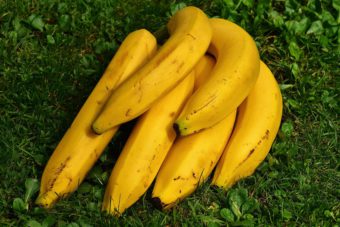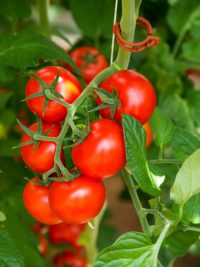Name of Product: Westland Sulphate of Potash
The Best Place to Buy: www.amazon.co.uk
Product Dimensions: Unknown
Shipping Weight: 1.5kg
My Rating: 9.5/10
In this article, we will be talking about the use of sulphate of potash in the garden to see if it does what it is supposed to do. From my past reviews, you know that I have discussed the importance of sulphate of ammonia, as a great way of introducing nitrogen in the garden. This is predominantly for those who want to grow vegetables for the leaves or for those who foliage, let us say is not the greenest.

I have also reviewed the importance of superphosphate in the garden, as a source of phosphorus in the garden. This not only increases the vigour but the plants’ root size and also helps in the ripening of fruit.
The last important, primary macronutrient is potassium, which is also needed by plants in appreciable quantities. This is an important element for blooms and fruit production, so why do you need to use it in the garden?
Well, you can read on to find out and to see if you have been neglecting its use in the garden.
WHY DO YOU NEED POTASSIUM IN THE GARDEN?
As said earlier potassium has a crucial role in plant and is required in large quantities for the plant to do well. In fact, after nitrogen, potassium is the second most required primary macronutrient, where it is known as the ‘Quality nutrient’. It influences plants in so many ways from the shape, size, colour and flavour of fruits and flowers.
Potassium has many functions in plants from the aiding of photosynthesis. It helps and regulates the opening and closing of stomata, and therefore how much carbon dioxide is uptaken by the plant, Potassium helps in the triggering and activation of enzymes that control the energy process inside the plant.
Potassium controls the uptake of water and how it is distributed throughout the plant. Potassium improves how much water is taking up by the roots and how much water is lost at the leaves. It also makes plants tolerate to draughts.

Protein and starches require potassium as well in both the synthesis of these and the uptake of the chemicals. Potassium is essential for its role in every step in protein production.
Potassium is involved in so many enzymes that without it any plant will not grow as well.
The main role of potassium is in the production of better, bigger blooms and more colourful blooms. It is also used to produce an abundance of fruit and to produce a better flavour.
You now know why potassium is essential for plant life. If you want to know what a potassium deficiency looks like, you can read my article on elements that plants needs.
WHAT IS SULPHATE OF POTASH?
This is a plant fertiliser that can be used for numerous plants to improve the quantity and quality of the blooms and fruits. It is known as sulphate of potash but is actual IUPAC name is potassium sulphate, K2SO4. As with sulphate of ammonia, it is also a source of sulphur, an important secondary macronutrient. If you want to find out the role of sulfur in plants, you can find it by reading my article on the role of elements in the container garden.
As indicated above potassium is important for bloom sizes and colours, as wells as yields. It is also important in making plants disease and weather resistant.
Its benefits in the fruit and vegetable garden are profound especially for tomatoes, peppers, raspberry, blackberry and other cane fruits, fruit trees and any other soft fruits.
WHAT IS THE NPK?
Its nitrogen: phosphorus: potassium ratio of this important element is 0:0: 49%. As you can imagine it has one of the highest sources of potassium you can have, even more than you would find in phostrogen.
A plant that is deficient in potassium tends to be stunted in growth and will not produce as many blooms or fruits.
Saying that, if you use too much potassium this can lead to a deficiency in magnesium and calcium, two important secondary macronutrients. It is a good idea if you use potassium in large amounts that you either use it with a balanced fertiliser that contains magnesium and calcium in appreciable amounts. An alternative is to include some Epsom salts and mix some lime with it, to help avoid these deficiencies.
A supplement that can be used throughout the garden. The beauty of sulphate of potassium is that it is highly soluble in water, so you can dissolve it and use it as a liquid feed. To use it effectively you should use it once or twice during the growing season.
FOR FLOWERS AND SHRUBS
Prior to planting, 70 grams per square metre over the planting area should be used. For established plants, feed 35 grames per square metre (a handful) once or twice during the growing season around the plants and fork it in.
FOR VEGETABLES AND TOMATOES
To prepare for growing these crops, use 70 gram per square metre over the planting area. For established plants, use 35 grams per square metre once or twice during the growing season. It is best to sprinkle the powder between rows and then fork it in.
FOR FRUIT TREES AND BUSHES
As a top dressing in early spring, sprinkle 140 gram of potash per square metre and apply it evenly over the tree span.
As a liquid fertiliser, you need to dissolve 30 grams per 9 litres of water and then water the plants at the roots.
To avoid any leaf burn avoid getting any product within the leaves or flowers.
PROS
- Has multiple uses in the garden from making them more resistant to disease to improving flavour, colours, abundancy and higher fruit yields.
- It is value for money.
- A little goes a long way.
- Can be used in dry form or as a liquid fertiliser.
CONS
- Too much use can cause a deficiency in calcium and magnesium.
- When it gets wet, it forms a wet mass and you can get a solid, hard lump, which is difficult to break and use.
- Not an organic product, so if you are not into gardening using organic principles, then it is not suitable for you.
WHY YOU SHOULD USE SULPHATE OF POTASSIUM?
If you want to have healthier plants with more blooms, more fruits then this product is for you. It has so many uses in the garden that you wonder what you did before its invention.
I use this product all over the garden for my 5 fruit trees to my gooseberry, blueberry, currants and raspberry plants. Do I get better bumper crops, you can bet your bottom dollar than I do. I feel that this would not have been the case if I did not use sulphate of potash.
If like me, you want better crops of fruit, then you can try it here.
If you want to ask me anything about this product then you can do so in the comment box below.
Happy fruit and flower growing.


I love learning about what my garden needs to thrive. I am totally a novice when it comes to gardening and tend to plant things and not work much for them after that but one of these days when I have more time I want to build my knowledge base and help things grow the best they can be! you have great info here. I would love to see or hear a description of a plant that is very potassium deficient? What are the most glaring signs?
Hi Ashton
I have written what a deficiency in potassium look like in Give Your Plants the Right Nutrients-What Elements Do Plant Needs? as this covers all the elements plants needs and how to recognise deficiencies on each one. Potassium is so important in flower and fruit production that people often forget to add it to the feed. I have talked about fertilisers extensively and you can peruse my website to find out more..
Thanks
Antonio
A container garden – that brings out the child in me. With the shrinking urban space, container gardens are the solution to grow both fruits and flowers.
I knew that potassium was important for the plants but now it becomes very clear why is it so. You have presented the use of sulphate of potash in a very simple way. Now I can easily relate to use of potassium as an activator of enzymes in functioning of plants – best in aiding photosynthesis.
As potassium helps to produce an abundance of fruits with better flavor, I am going to try this out myself in my little kitchen garden.
Thank you for sharing such an informative post.
Hi Rohit
I am glad you enjoyed reading my article on sulphate of potash, as it is such an important fertiliser that if you want abundant fruits and blooms you should not be without it. I hope you look around my website and get more information that you can use.
Thanks
Antonio
Hello, Antonio
I really enjoyed reading your very helpful article.
I am new to gardening and have just moved into my first home. Previously it was rented to students so not a lot of care has gone into the garden. I think it will take a few years to remedy this and quite a few products too.
I saw from your article that sulphate of potash isn’t organic but it does sound very useful. I like the idea of organic gardening but I do wonder if it makes things harder. What do you think about organic gardening?
Best wishes,
Cameron
Hi Cameron
I am in the process of writing an article on organic principles and how to use it in the garden. It will talk about how to deal with pests and diseases organically. I will in another future article talk about organic fertilisers you can make at home, so I will cover everything. If you want a quick boost some people use banana peels, planted in hole before you place the plant. Some praise it no ends, but it can be hit and miss.
Thanks
Antonio